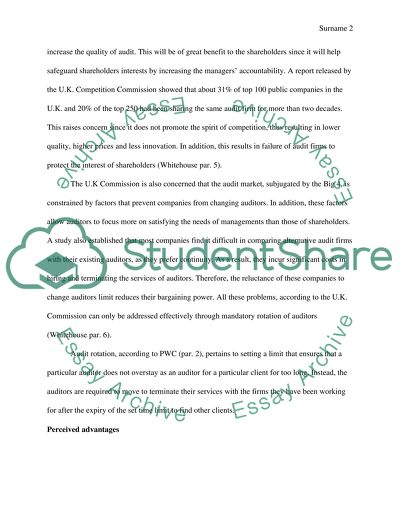Cite this document
(“Does the rotation of auditors improve the quality of auditing Essay”, n.d.)
Does the rotation of auditors improve the quality of auditing Essay. Retrieved from https://studentshare.org/finance-accounting/1487600-does-the-rotation-of-auditors-improve-the-quality
Does the rotation of auditors improve the quality of auditing Essay. Retrieved from https://studentshare.org/finance-accounting/1487600-does-the-rotation-of-auditors-improve-the-quality
(Does the Rotation of Auditors Improve the Quality of Auditing Essay)
Does the Rotation of Auditors Improve the Quality of Auditing Essay. https://studentshare.org/finance-accounting/1487600-does-the-rotation-of-auditors-improve-the-quality.
Does the Rotation of Auditors Improve the Quality of Auditing Essay. https://studentshare.org/finance-accounting/1487600-does-the-rotation-of-auditors-improve-the-quality.
“Does the Rotation of Auditors Improve the Quality of Auditing Essay”, n.d. https://studentshare.org/finance-accounting/1487600-does-the-rotation-of-auditors-improve-the-quality.


